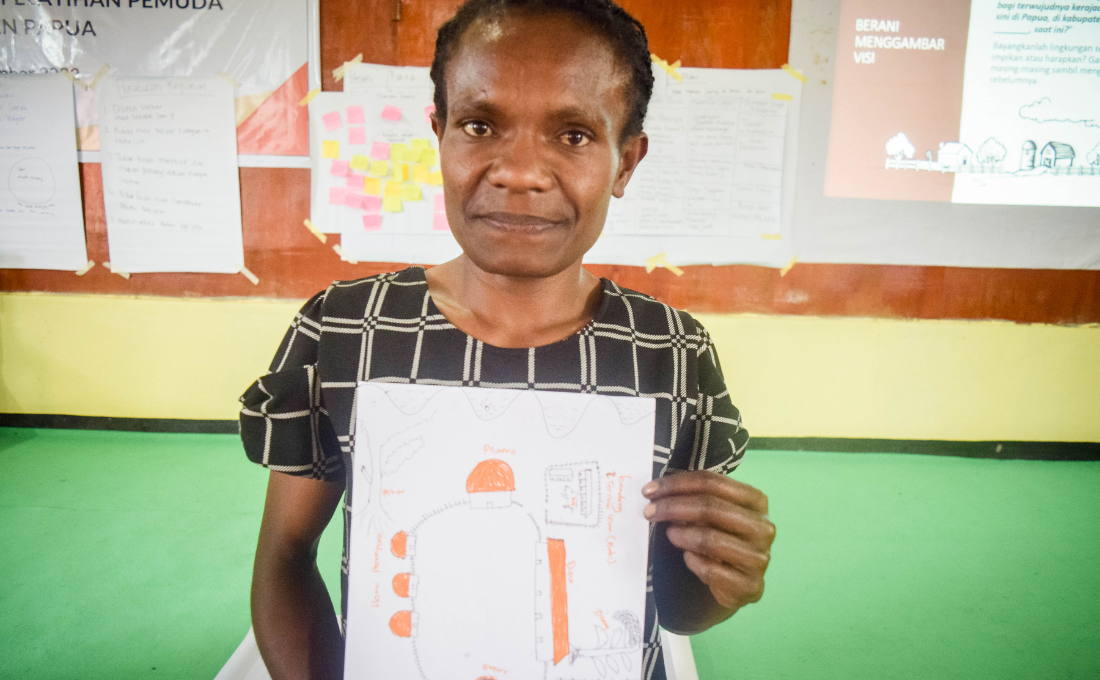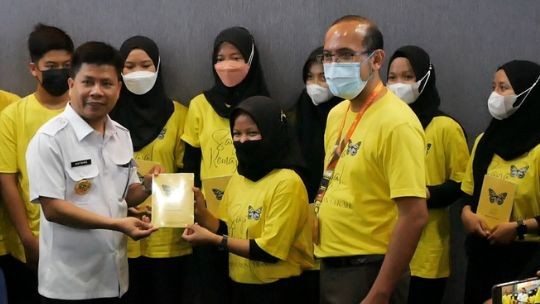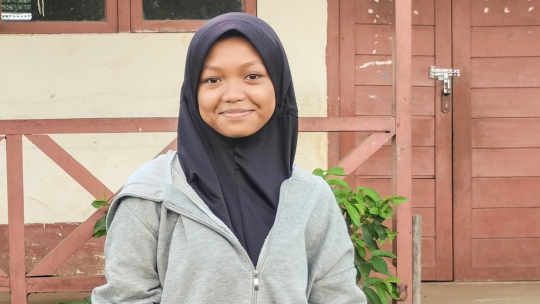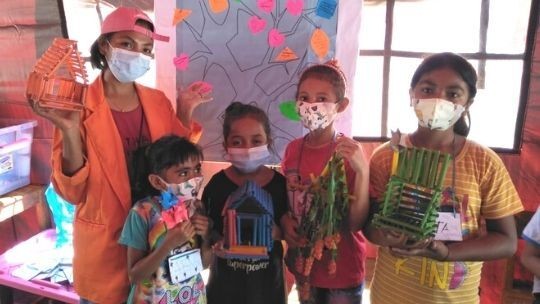Papuan Women Care for Harmony

"We are afraid. The children around me are still small and can say that there is no commotion, but they are still afraid because they are not getting along," said Jurusella Elopere (32), a single mother with two children who lives in Jayawijaya Regency.
The district where Sella and her family live is safe. Actions that endanger and disrupt the social order of the community no longer occur. However, the agreement to unite has not yet materialized. Representatives of the Tiga Tungku, which means representatives from the government, traditional leaders, and religious leaders, have yet to meet to resolve the persistent problems. This pile of problems is a time bomb that could lead to an outbreak of violent conflict. Currently, the people of Jayawijaya Regency are living in a state of latent conflict.
Both violent and latent conflicts have a negative impact on society, especially children. Violent conflict is so risky that it brings the wheels of life to a halt. Children cannot go to school, markets are not open, and public facilities such as health services are difficult to access. Families close their doors, take cover, and surviving with what's in their homes.
Latent conflict causes trauma, loss of trust between community members, and makes people live in constant danger. "Even when we meet on the street, the fear is always there. During mass, the two disputing parties don't want to see each other," says Sella. Therefore, she hopes that this situation can be quickly resolved in accordance with the Papuan context, namely by holding a Bakar Batu culture. During Bakar Batu, representatives of the Tiga Tungku from the disputing parties meet in an open discussion room and jointly agree to get along.
Sella realizes that there is still a long way to go. Therefore, she tried to do what she could to pave the way to harmony. When the NOKEN (Community Transformation for Harmony) program came to Jayawijaya District, Sella welcomed it. For one year, Sella actively participated in every training facilitated by Wahana Visi Indonesia and its partner Elagaima Parish Catholic Church. Through this series of trainings, Sella gained insight into various kind of conflicts and methods of resolving them. Even together with other participants, she can formulate problem-solving methods that are appropriate to the context of Papua, especially Jayawijaya Regency.
"I was most happy when I learned about various conflicts," admitted the woman who works as a farmer, "from there I became more aware of the conflicts that occur around me,". Armed with insights about conflict and the importance of harmony, Sella and several other women in her area took the initiative to encourage religious leaders in her church to hold discussions with traditional leaders and the government. Sella became an agent of harmony who continued to speak out so that this issue would not be left dormant any longer.
In the second year, the NOKEN program intends to continue implementing activities that promote harmony. Each party, be it youth, community leaders, women, will carry out activities such as campaigns to prevent violent conflict and promote harmony and tolerance through social media, socialization of gender equality and reproductive health, training and festivals of local food creations. In addition, capacity building for youth and women will also continue.
Wahana Visi Indonesia and partners such as the Elagaima Parish Catholic Church in Jayawijaya District will also establish Harmony Committees in nine districts. These committees will be responsible for promoting harmony building, contributing to the prevention of violent conflicts, and resolving horizontal conflicts within their communities. In action, the Harmony Committees will help socialize the NOKEN program modules, build the Conflict Early Warning & Early Response (CEWER) System, and initiate dialogue and cooperation among the three stoves. Together with the village and district governments, the Committee will also document local wisdom containing values of tolerance and harmony. Prior to carrying out their duties, the committee members, consisting of youth, women and community leaders, will be given capacity building in mediation and CEWER development.
Writers and contributors : Prananingrum (Peacebuilding Coordinator program NOKEN), Andina Larasati (Monev Coordinator program NOKEN)
Editors: Andina Larasati, Mariana Kurniawati (Communication Executive)



